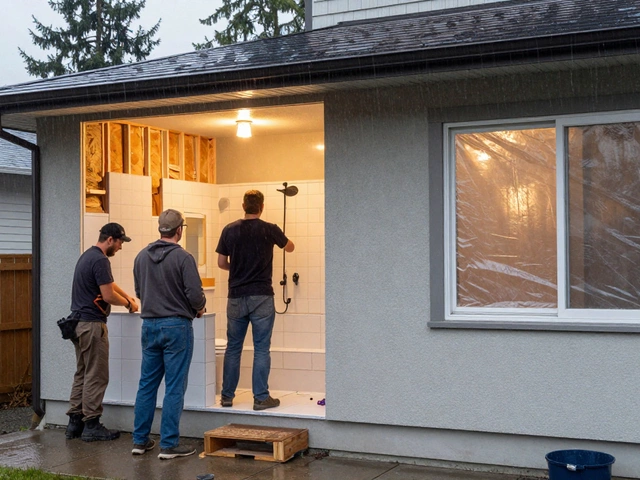Builder vs Contractor: Key Differences and What You Really Need
When you’re planning a home renovation or repair, you’ll hear two terms thrown around: builder, a skilled tradesperson who handles hands-on construction work like framing, roofing, or brickwork. Also known as tradesman, it usually means someone who shows up with tools and gets the job done on-site. Then there’s the contractor, a person or company that manages the whole project—hiring workers, ordering materials, handling permits, and keeping things on schedule. Also known as general contractor, they’re the ones you call when you need someone to coordinate everything from start to finish. The difference isn’t just semantics—it’s about who’s holding the clipboard and who’s holding the hammer.
Most homeowners think these roles are interchangeable, but they’re not. A builder might be the guy who installs your new kitchen cabinets or lays your flooring. A contractor, a project manager who coordinates multiple trades and ensures compliance with building regulations, is the one who hires that builder, plus the electrician, the plumber, and the inspector. If you’re doing a full kitchen remodel or a loft conversion, you need a contractor. If you’re just replacing a damaged floorboard or fixing a leaky gutter, a builder might be all you need. And if you’re unsure? Ask who’s responsible for getting the permits. If they don’t know, they’re probably not a contractor.
This distinction matters because it affects your budget, timeline, and peace of mind. A contractor takes on legal responsibility for the work being done right and on code. A builder doesn’t—unless they’re also licensed as one. In the UK, many small-scale renovation jobs are handled by builders working independently. But if your project involves structural changes, electrical rewiring, or plumbing reroutes, you’re better off with a contractor who can pull permits, manage inspections, and guarantee the work. Look at the posts below—you’ll find real examples: how foundation cracks need the right expert, why you can’t rush decorating a new build, and what upgrades actually add value to your home. These aren’t just tips—they’re lessons in knowing who to call when.
Don’t assume more experience means more authority. Some of the best builders have 30 years of hands-on work but won’t touch a planning application. Some contractors have glossy websites but outsource every task. The key is asking: Who’s going to show up when something goes wrong? Who’s insured? Who’s accountable? The right answer doesn’t always come with the lowest quote.
Why Is a Builder Called a Contractor? The Real Reason Behind the Term
A builder is called a contractor because they manage the entire project, sign legal contracts, and take responsibility for all work-not just build things. The term reflects accountability, not skill.
full article




